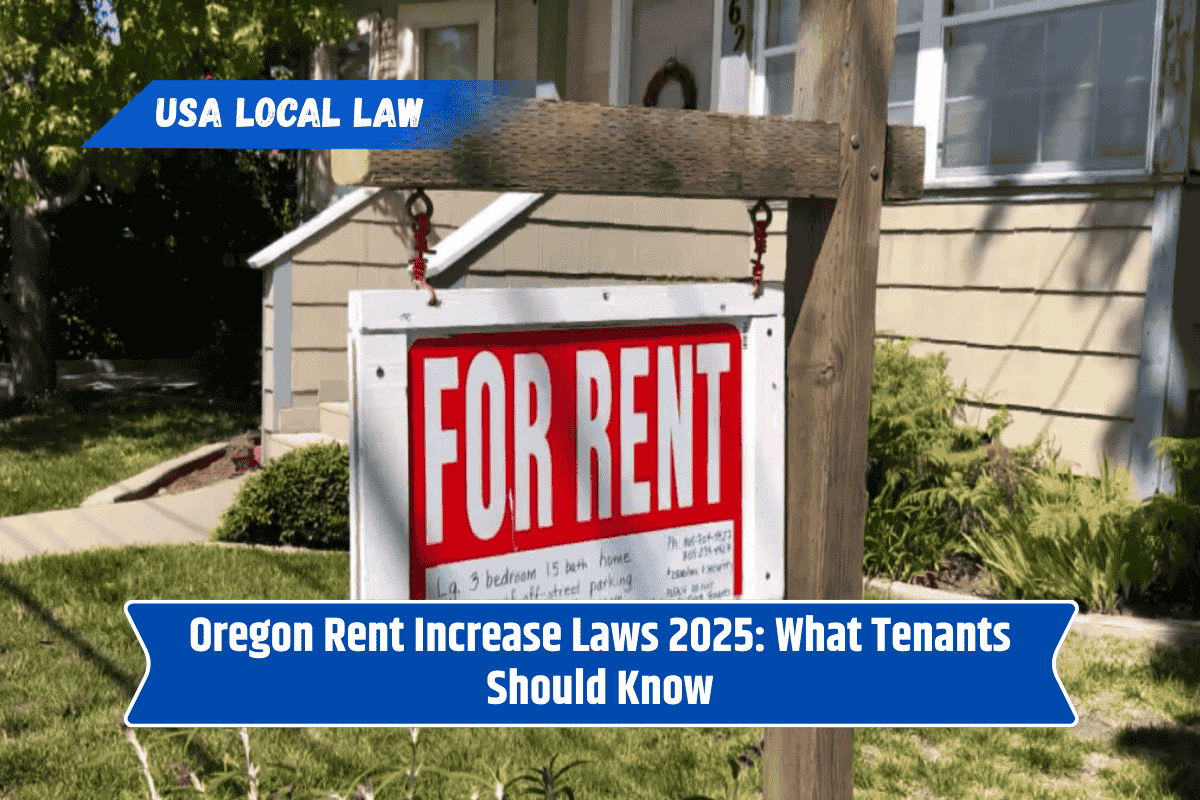If you’re renting in Oregon, it’s important to stay updated on the rules around rent increases. In 2025, Oregon continues to follow statewide rent control laws that limit how much landlords can raise rent each year.
These laws are designed to protect tenants from sudden, steep rent hikes while still allowing landlords to manage their properties fairly. Here’s what tenants in Oregon need to know about rent increase rules in 2025.
What is Oregon’s Rent Control Law?
Oregon was the first U.S. state to introduce statewide rent control in 2019. The law limits how much landlords can raise rent each year for most rental properties.
The rent increase cap is tied to inflation (based on the Consumer Price Index, or CPI) and includes an additional 7%. Each year, the state sets a new maximum percentage based on this formula.
What’s the Maximum Rent Increase in 2025?
As of 2025, the Oregon Department of Administrative Services has set the maximum allowable rent increase at 10%.
This is based on:
3% inflation rate (CPI)
+7% allowed under the law
So, the total allowable increase = 3% + 7% = 10%
Note: This applies to most rental units that are 15 years or older. Newer buildings (constructed within the last 15 years) are exempt from this rule.
Who is Covered Under the Rent Control Law?
The rent increase cap applies to:
Most rental homes and apartments in Oregon
Tenants who have lived in the unit for more than one year
Not covered:
Units built in the past 15 years
Government-subsidized housing (Section 8, low-income housing)
Short-term rentals (less than 30 days)
Notice Period for Rent Increases in 2025
Landlords must give tenants at least 90 days’ written notice before any rent increase takes effect. The notice must include:
The amount of the rent increase
The new total rent amount
The date the new rent begins
If the notice is not given properly, the rent increase may not be valid.
How Often Can Rent Be Increased?
Landlords in Oregon can raise rent only once in a 12-month period for the same tenant. Trying to raise rent multiple times in a year is not allowed.
What Happens if a Landlord Breaks the Law?
If a landlord raises the rent above the legal limit or fails to provide proper notice, tenants can:
File a complaint with Oregon’s Housing and Community Services Department
Take legal action in small claims court
Seek help from local tenant rights organizations
Landlords who violate rent control laws may face fines and be required to refund any illegal rent charges.
Tips for Tenants to Handle Rent Increases
Ask for a written notice: If your landlord tells you about a rent increase verbally, request it in writing.
Check the age of your building: If it’s under 15 years old, rent control rules may not apply.
Verify the percentage: Compare your increase to the 2025 limit (10%). If it’s more, ask for clarification.
Know your rights: Many cities have tenant unions or legal aid services that can guide you.
What About No-Cause Evictions?
Oregon also restricts “no-cause” evictions for tenants who have lived in a property for over one year. A landlord must provide a legal reason for ending the lease, such as:
Planning major repairs or renovations
Selling the property
Moving into the unit themselves
Landlords must provide 90 days’ notice and sometimes offer relocation assistance, especially in Portland and other cities with extra protections.
In 2025, Oregon’s rent control laws continue to provide strong protections for tenants. The 10% rent increase cap helps prevent unfair price hikes, while the 90-day notice rule gives renters enough time to prepare.
If you’re renting in Oregon, it’s important to understand these rules so you can stand up for your rights and avoid being caught off guard. Staying informed helps you stay in control.
